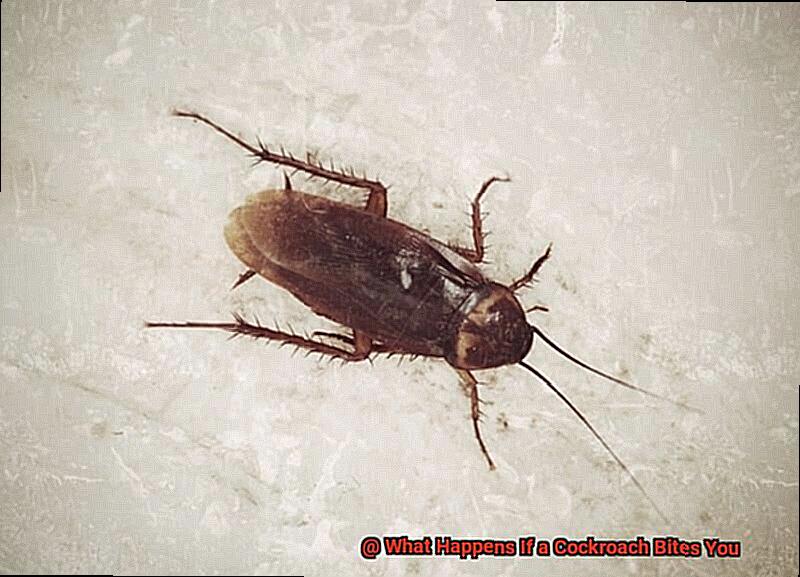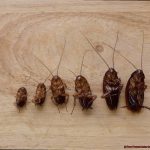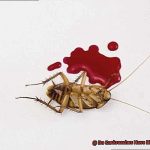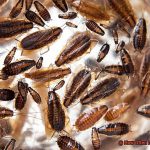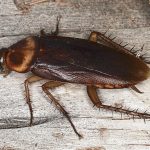Have you ever felt the creepy-crawly sensation of a cockroach on your skin? It’s enough to make anyone shudder. But what if that cockroach actually bites you? Unfortunately, it’s not uncommon for these pesky insects to take a nibble, especially when we’re fast asleep at night. And while you might think it’s just a minor inconvenience, it’s important to understand what happens if a cockroach bites you.
First and foremost, it’s vital to recognize that cockroaches are carriers of harmful bacteria and pathogens that can seriously impact human health. When they bite, they leave behind saliva and other substances that can lead to serious infections or allergic reactions.
In addition to the potential health risks, cockroach bites can be incredibly uncomfortable. They often cause intense itching and pain and can result in swelling and redness around the affected area. In rare cases, individuals may even experience anaphylaxis – a severe allergic reaction that can cause difficulty breathing and prove fatal.
In this blog post, we’ll dive into the effects of a cockroach bite on human health, explore common symptoms, and offer tips on how to prevent getting bitten in the first place.
So, let’s get started.
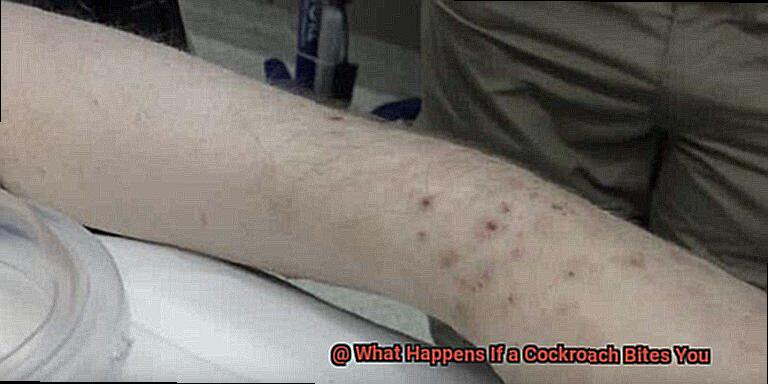
What Are Cockroaches?
Contents
Cockroaches are quite fascinating insects that belong to the order Blattodea. They range in size from tiny to over three inches long and are often associated with unsanitary conditions, making them a common household pest.
With over 4,000 species of cockroaches worldwide, only a few are considered pests in the United States, with the German cockroach being the most prevalent. This species is small, light brown, and has two dark stripes on its pronotum. The flattened body shape of cockroaches allows them to squeeze into tight spaces, making them challenging to control once they have infested a home or building.
Cockroaches are nocturnal insects and are most active at night. They have six legs, two antennae, and two pairs of wings (although not all species can fly). While they are generally harmless, they do have the ability to bite humans. A cockroach bite can cause redness, swelling, and itching around the bite area. In some cases, the bite may become infected, leading to more severe symptoms such as fever, nausea, and vomiting.
One of the biggest concerns with cockroach bites is the potential for allergies. Some people are allergic to cockroach saliva or droppings, which can cause a severe reaction when they are bitten. Symptoms of an allergic reaction can include hives, difficulty breathing, and anaphylaxis in severe cases.
Cockroaches are known carriers of bacteria and pathogens such as Salmonella and E. coli. They can also trigger asthma and allergies in some people through their droppings and shed skin. Therefore, it is crucial to thoroughly clean and disinfect any areas where cockroaches have been present to prevent further bites and potential health risks.
What Does a Cockroach Bite Look Like?
While cockroach bites may not be the most common occurrence, they can still happen, and it’s important to know what to expect. These pests tend to avoid human contact, but if you do end up with a bite, you may experience some discomfort and irritation. The appearance of the bite can vary depending on the severity of the bite and your individual reaction to it.
Typically, cockroach bites show up as small red bumps on the skin that can easily be mistaken for mosquito or flea bites. However, unlike those pesky insect bites, cockroach bites are not itchy. Instead, they can feel like a sharp pinch on the skin that can be quite painful.
In some cases, cockroach bites can cause an allergic reaction in some individuals, leading to more severe symptoms such as swelling, hives, and difficulty breathing. If you experience any of these symptoms after a cockroach bite, it’s important to seek medical attention immediately.
It’s crucial to note that cockroaches are known carriers of harmful bacteria and pathogens that can cause illnesses such as salmonella, E.coli, and dysentery. Although the risk of transmission through a bite is low, it’s still essential to practice good hygiene and prevent infestations to avoid potential health risks.
Overall, while cockroach bites may not be very common, it’s vital to take precautions to prevent infestations and practice good hygiene to avoid potential health risks. Remember that prevention is key when it comes to keeping these pesky pests at bay.
How Do Cockroaches Bite Humans?
They can also bite humans. Yes, you read that right. Cockroaches have powerful mandibles that enable them to bite into food and defend themselves against predators. However, sometimes they mistakenly target your skin, resulting in an accidental bite.
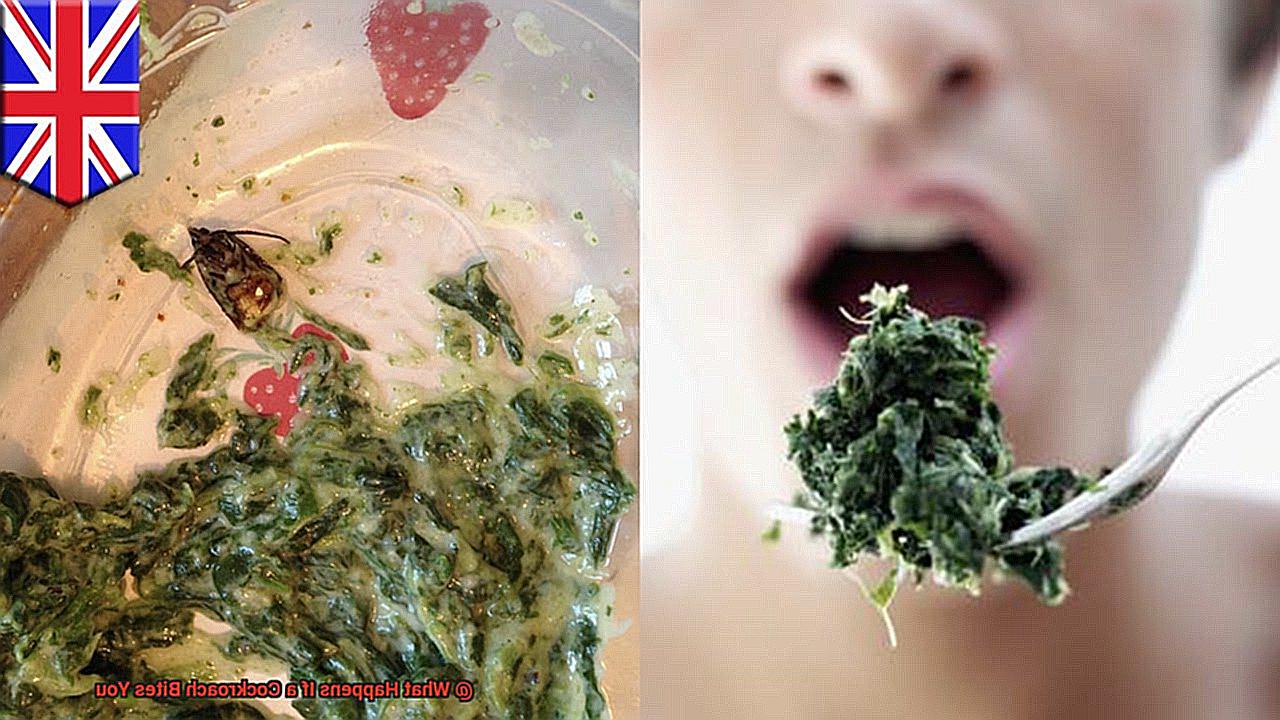
These pesky insects are most active at night and are attracted to warm and moist areas of the body, such as the mouth, nose, and ears. So, if you wake up with a mysterious bite mark on your face or neck, chances are it could be a cockroach bite.
But don’t fret. While a cockroach bite can be uncomfortable and irritating, it is not considered dangerous or life-threatening. Cockroaches do not carry diseases or venom, so there is no need to worry about getting sick from a bite. However, some people may have an allergic reaction to the bite, which can cause redness, swelling, and itching. If that’s the case with you or someone you know, seek medical attention immediately.
The best way to prevent these accidental bites is by keeping your home clean and free of these pesky insects. Cockroaches thrive in dirty and cluttered environments, so make sure to clean up any food spills and crumbs immediately. Additionally, seal any cracks or crevices where cockroaches can enter your home and invest in professional pest control services to eliminate any infestations.
What Are the Symptoms of a Cockroach Bite?
Cockroaches are not just the sneaky, skittering creatures that lurk in the shadows of your kitchen. They can also be rather pesky biters, causing discomfort and irritation. So, what exactly happens when a cockroach bites you?
Well, the symptoms of a cockroach bite are similar to those of other insect bites, such as itching, redness, and swelling. However, if you happen to be allergic to these little critters, you may experience more severe symptoms like difficulty breathing or swelling of the face or throat. In rare cases, a cockroach bite can even cause an infection.
But that’s not all. Cockroaches are notorious for carrying bacteria and diseases. So, if one happens to nibble on you, there’s a chance it could transmit an infection or disease to your body. To nip any potential health risks in the bud, it is essential to keep your home clean and pest-free.
If you suspect that you have been bitten by a cockroach and are experiencing symptoms, it’s important to seek medical attention. Your doctor can diagnose the bite and provide any necessary treatment to alleviate your symptoms and prevent any potential complications.
Is It Possible to Have an Allergic Reaction to a Cockroach Bite?
For some people, a cockroach bite can trigger an allergic reaction. While these bites are not common, they can happen if the cockroach feels threatened or provoked.
If you have an allergy to cockroaches, even a small bite can lead to a range of symptoms, from mild to severe. You may experience hives or difficulty breathing, or your face and mouth may swell up. In rare cases, the reaction could be life-threatening due to anaphylaxis, which causes symptoms like low blood pressure, rapid heartbeat, difficulty breathing, and loss of consciousness.
It’s worth noting that not everyone who gets bitten by a cockroach will have an allergic reaction.
However, if you have had such a reaction in the past or know that you have an allergy to cockroaches, it’s crucial to take steps to avoid them. Keeping your home clean and clutter-free is one of the most important things you can do.
Additionally, sealing any cracks and crevices where cockroaches may enter your home and using insecticides when necessary can help keep these critters at bay.
How Can You Prevent Cockroach Bites?
Not only are they unpleasant, but they can also lead to allergic reactions. Luckily, there are several measures you can take to prevent these pesky insects from invading your home and biting you.
First and foremost, eliminate any potential food sources that may attract roaches. Keeping your home clean and free of crumbs, spills, and garbage is essential. Cockroaches love dirty environments, so make sure to keep your home spotless.
Sealing up any cracks or gaps in walls, baseboards, and pipes is also crucial. Cockroaches can enter through even the tiniest openings, so ensure that you seal up any potential entry points.
Another effective way to prevent cockroach bites is to use insect repellents or sprays around your home. However, be sure to follow the instructions carefully and keep these products away from children and pets.
If you spot a cockroach in your home, do not attempt to handle or kill it with your bare hands. Use gloves or a paper towel to dispose of it safely instead. Sticky traps or baits can also help capture and eliminate roaches without risking a bite.
Finally, consider investing in mesh screens for your windows and doors to prevent cockroaches from entering your home altogether. Regular pest control treatments can also be helpful in keeping your home roach-free.
7GQKLQdIYmE” >
Conclusion
To sum up, a cockroach bite may seem like a small issue, but it can lead to significant health problems. These insects are known for carrying harmful bacteria and pathogens that can cause infections and allergic reactions in humans. A cockroach bite can be uncomfortable and result in intense itching, pain, swelling, and redness around the affected area. In rare cases, individuals may even experience anaphylaxis – a severe allergic reaction that could prove fatal.
To avoid being bitten by cockroaches, it is essential to maintain a clean and clutter-free home environment. Cockroaches thrive in dirty environments; therefore, eliminating potential food sources that may attract them is crucial. Sealing cracks or gaps in walls and pipes will also help prevent these pests from entering your home.
If you spot a cockroach in your house, do not attempt to handle or kill it with your bare hands. Instead, use gloves or paper towels to dispose of them safely. Sticky traps or baits can also help capture and eliminate roaches without risking a bite.
Lastly, consider installing mesh screens on your windows and doors to prevent cockroaches from entering your home altogether. Regular pest control treatments can also be helpful in keeping your home free of these pesky insects.
Remember that taking proactive measures such as these is key when it comes to avoiding cockroach bites and potential health risks associated with them.

